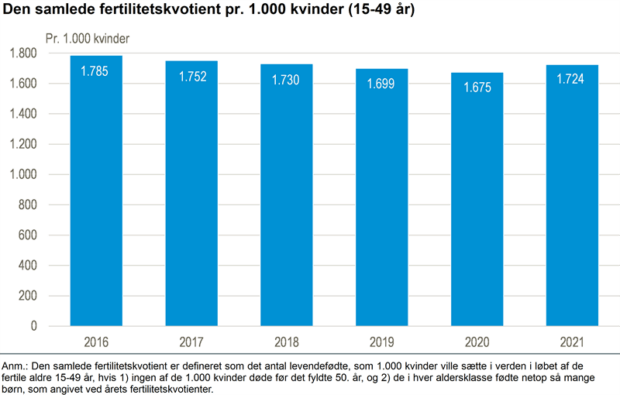News
Women having more children in Denmark
This article is more than 3 years old.
Following a four-year decline, the overall fertility quotient among 15 to 49-year-olds increased in 2021

First-time moms still getting older (photo: Pixabay)
According to new figures from Danmarks Statistik, women in Denmark are having more children for the first time in four years.
The figures show that the overall fertility quotient (FQ) among 15 to 49-year-olds increased to 1,724 per 1,000 women in 2021.
That number is on a par with level in 2018 when the FQ was 1,730 per 1,000 women.
Taking a look at the various age groups, the biggest fertility increase was seen among 30 to 34-year-olds, which rose from 130.6 in 2020 to 135.6 per 1,000 women in 2021.
Among 35 to 39-year-olds, the number also increased: from 68.5 to 73.3 per 1,000 women.
But among 20 to 24-year-olds, the fertility rate declined for the fifth year in a row – another indication that women in Denmark are having children at an older age.
That suggestion was given further credence by the average age of first-time mothers increasing from 29.6 in 2020 to 29.8 in 2021.
The same development was seen for the average age of all women giving birth in 2021 compared to the previous year.
READ ALSO: Life expectancy declined globally during COVID-19 – but increased in Denmark
Once, twice, three kids per lady
Meanwhile, the average age of fathers remained unchanged: 31.5 years old for first-time fathers and 33.5 overall.
The 63,473 children born in 2021 was 4.2 percent more than in 2020 and, of those, there was a 9.6 percent increase of newborns to mothers who already had two children.
A similar rise (5.8-6.6 percent) was observed among mothers who already had one or three children.
The percentage of newborns born to first-time mothers increased by only 1.3 percent in 2021.











































